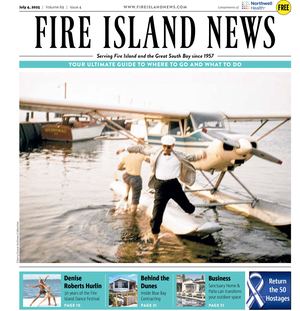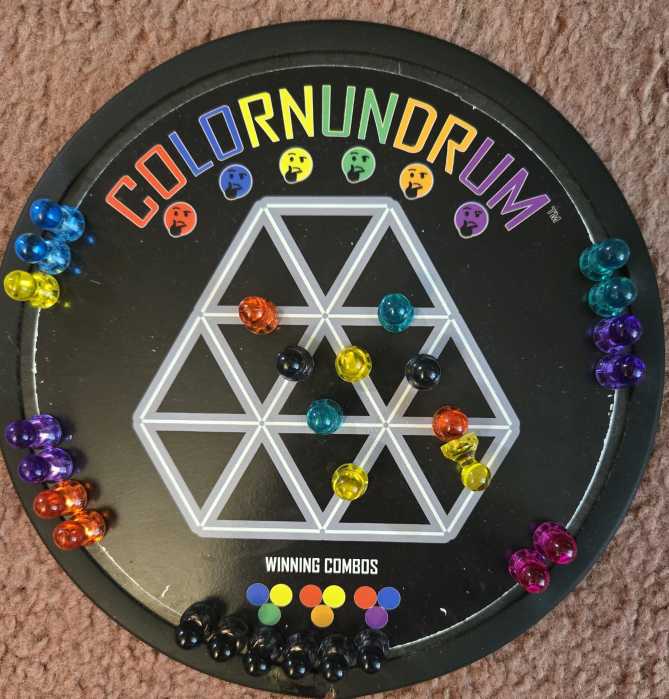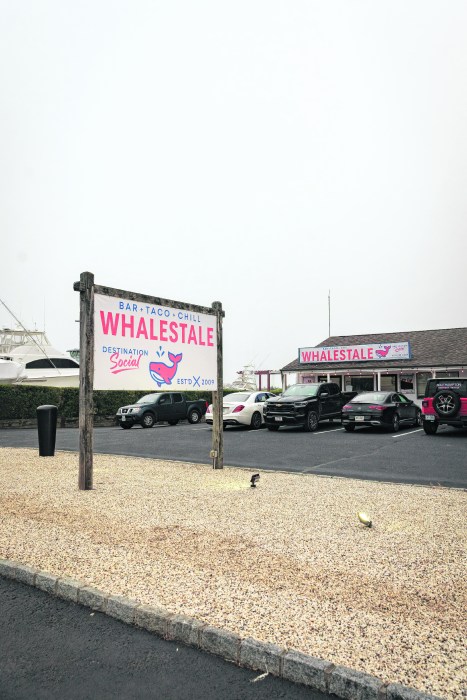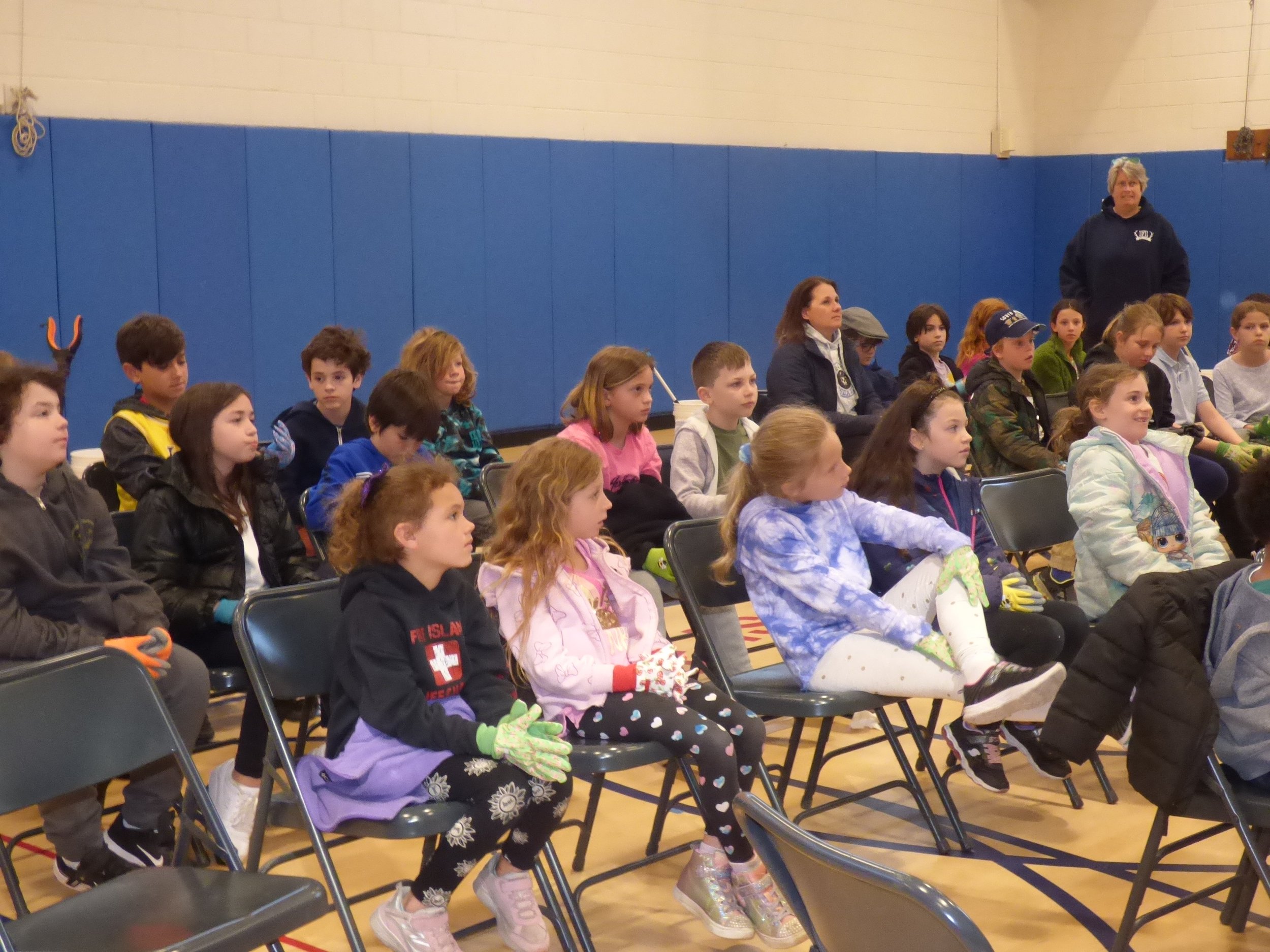
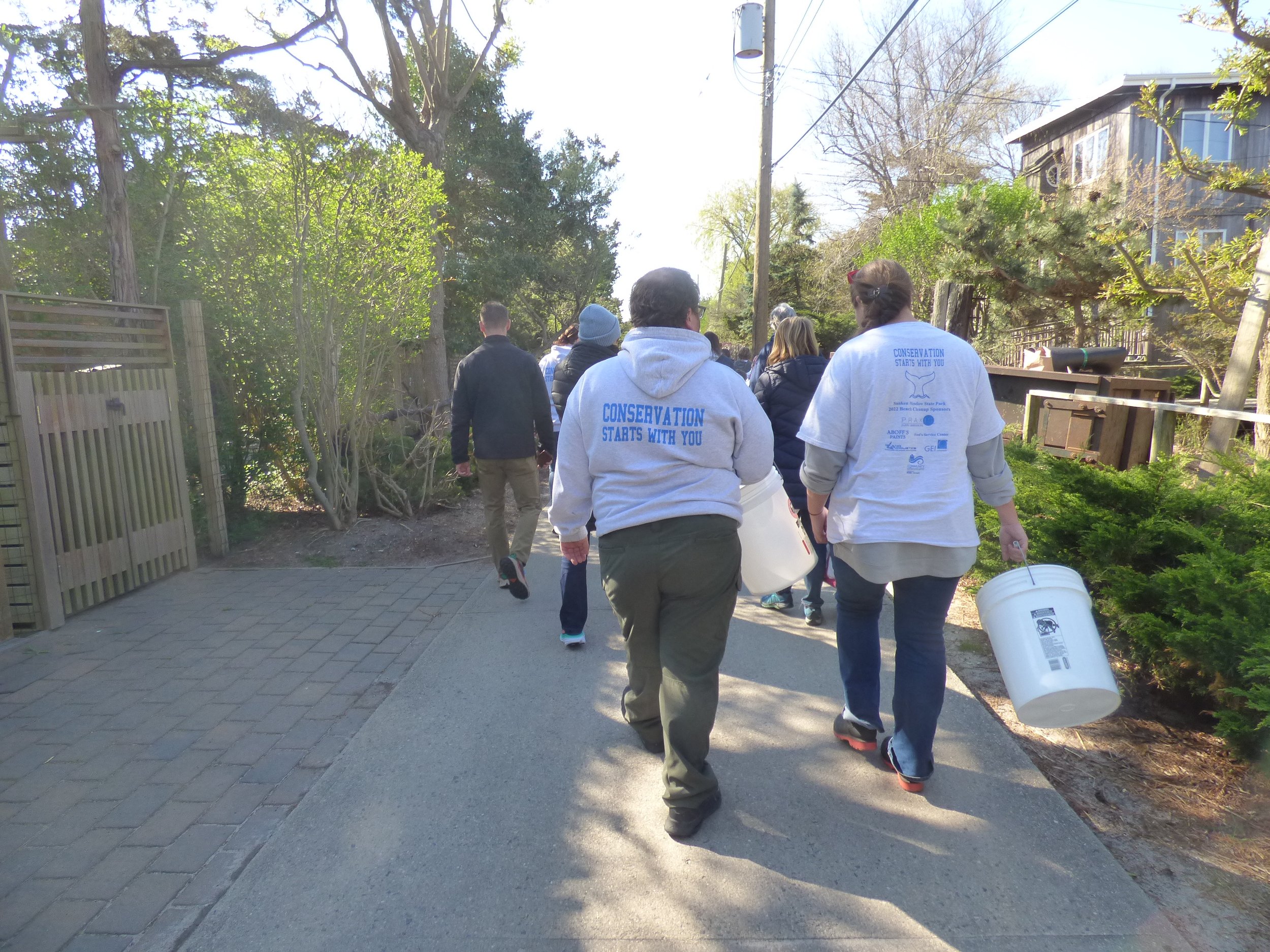
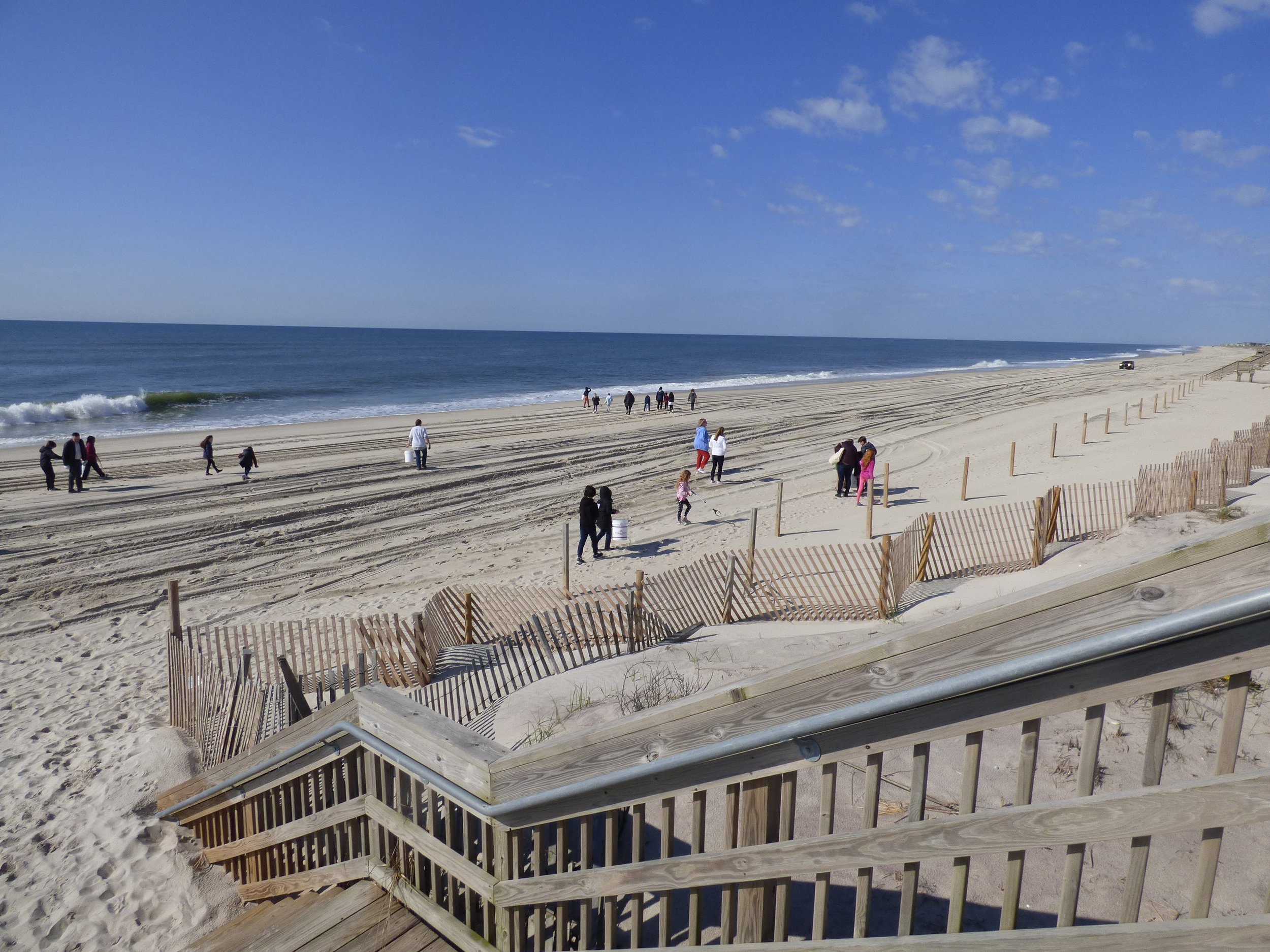
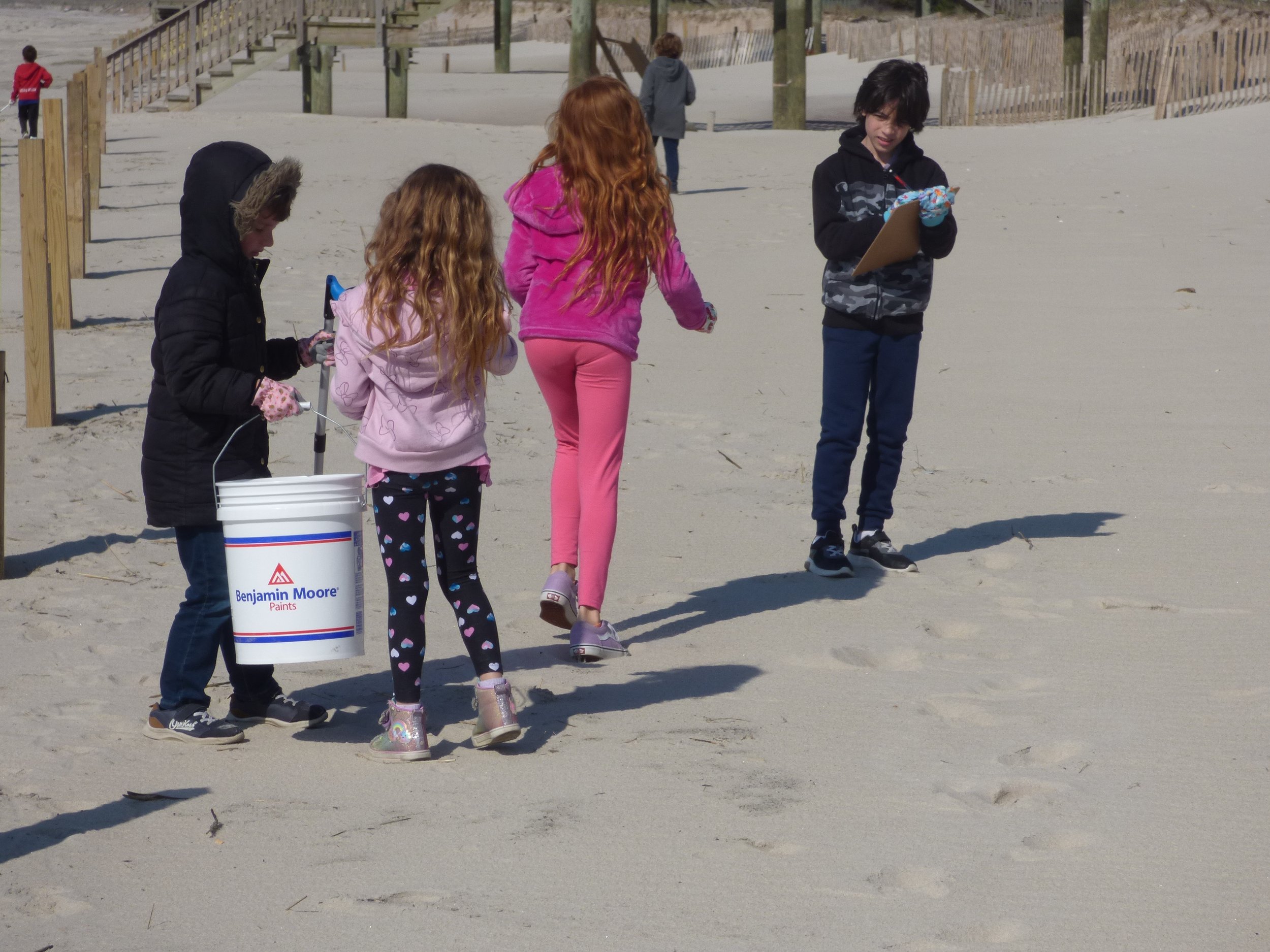
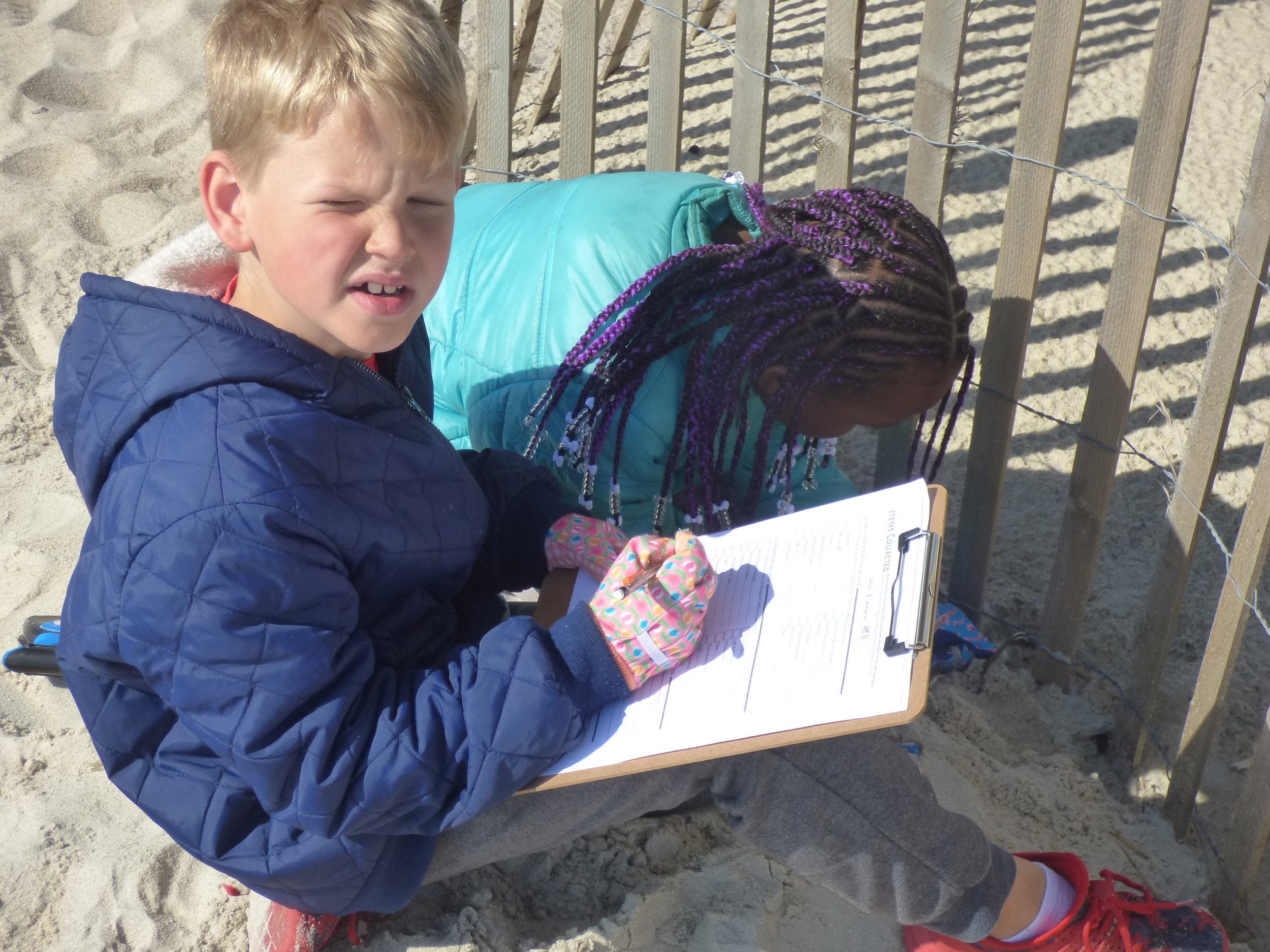
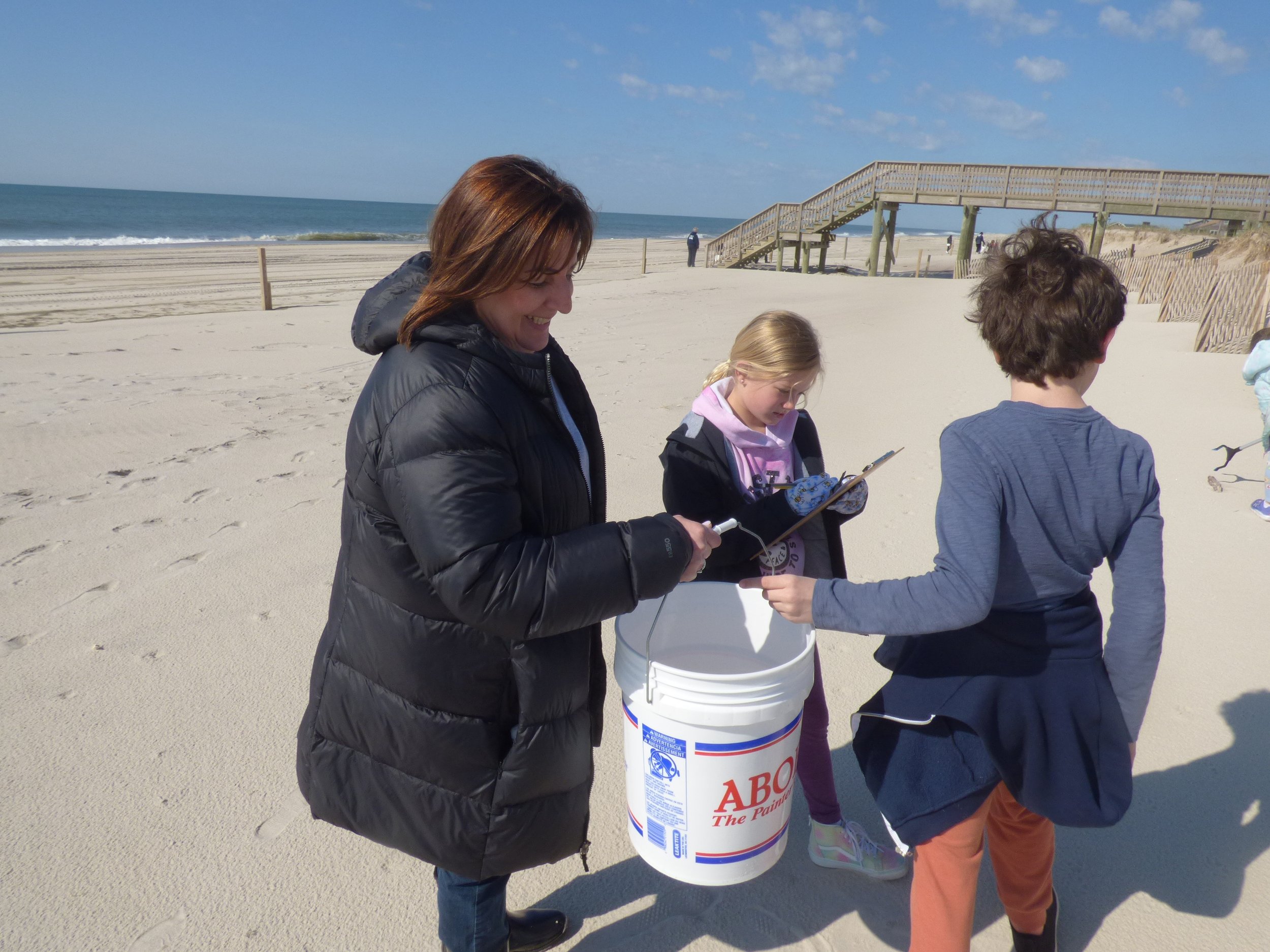
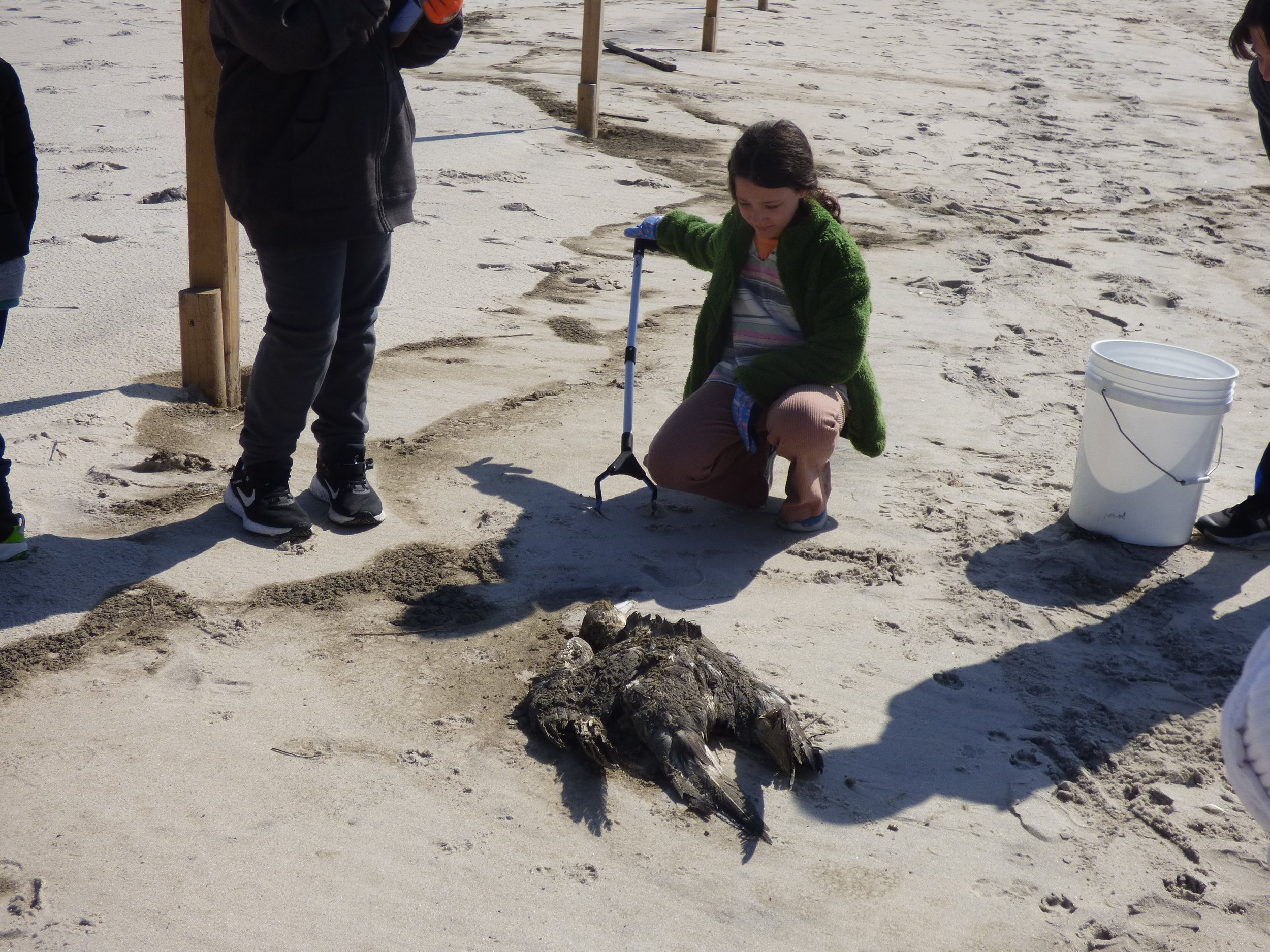
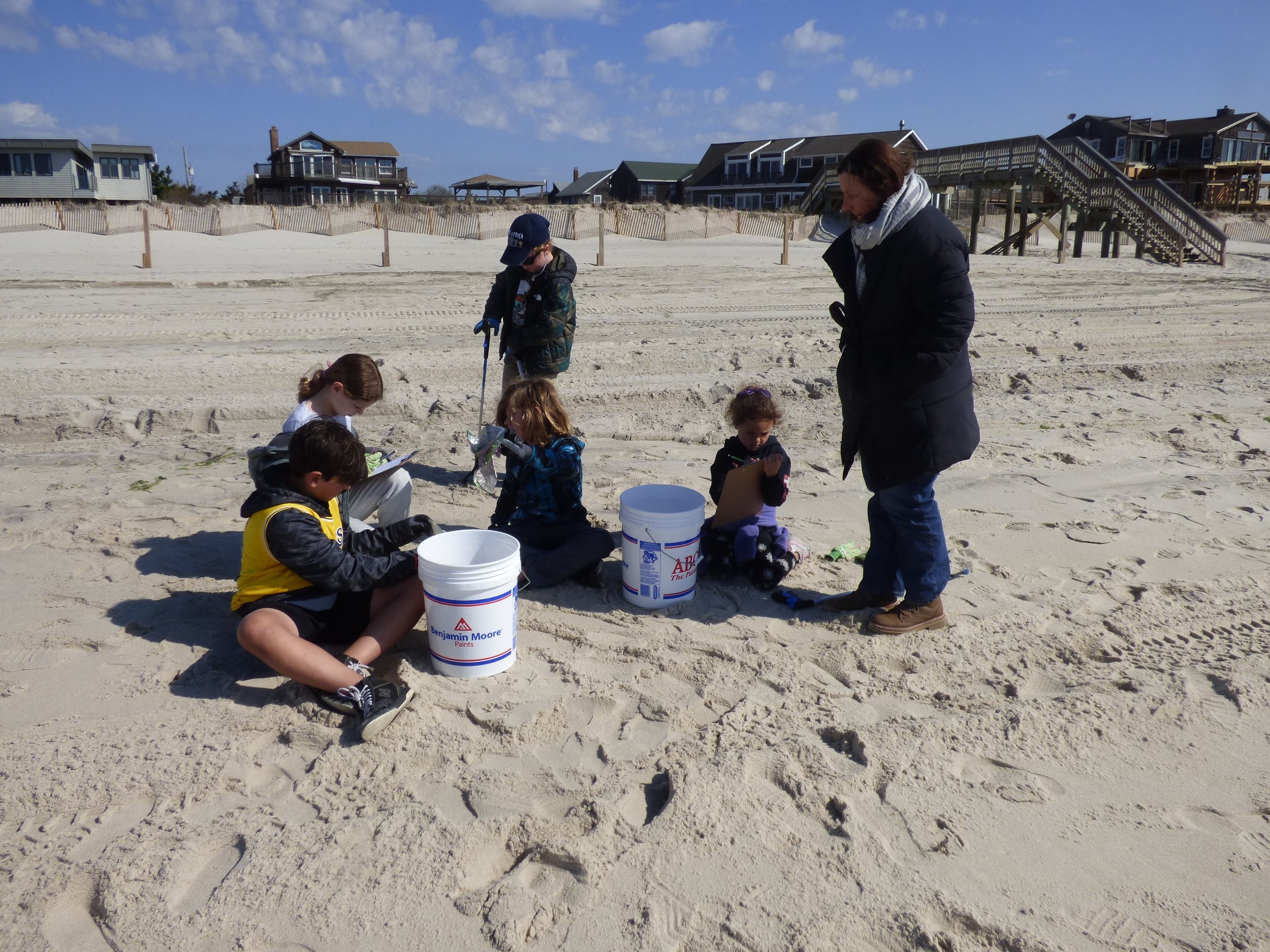
Earth Day 2023 may have happened already, but perhaps the lesson that taking positive action for our planet is something we must do every day was one of the most important takeaways that Atlantic Marine Conservation Society (AMCS) instilled on the students upon paying a visit to Fire Island Union Free School District’s (FIUFSD) Woodhull Elementary on Tuesday morning, April 25.
AMCS is usually cited in our publication when they respond to marine life in distress on one of Fire Island’s beaches – be it porpoise, sea turtle, or larger ocean mammals. However, education and public awareness is also part of their mandate and sending the message to our next generation now is mission critical.
The project of the day was a beach clean-up – a pretty straightforward activity – or was it?
“We clean up what does not belong there and leave behind what should stay,” the AMCS crew leader explained to the children assembled in the gymnasium before making the trek. No this was not a time for gathering seashells or other ocean treasures, this was a day for getting hands a little dirty, and in this spirit the children were supplied with colorful gloves to do the job, as well as grabber tools and gathering buckets.
“These tools are for picking up garbage not pinching your friend’s nose or knees,” FIUFSD Superintendent Travis Davey sternly advised as he gave a demonstration on how to use the grabber tool.
Then we were off heading south on Surf Road to the beach overpass on the border of Ocean Beach and Corneille Estates. The kids were all over the beach in no time, separated into small teams of children of mixed ages – one child armed with a bucket, another with the grabber, and one more still with a clipboard listing their finds – water bottles, tennis balls, there was even a soiled dipper collected… thank goodness for those gloves!
The discovery of an orange peel hull became the source of heated debate with one collection group.
“We collect it!” a dark-haired boy said.
“We leave it behind, it’s organic,” his blonde-haired classmate responded. “What should we do?” she then asked this reporter, the closest adult in range. Was not sure how to answer, but I praised them for raising a good question.
Then further down the beach another group of children stumbled upon a gannet that washed ashore dead on the beach. The great sea bird did not make it – a sobering reminder of why ocean stewardship is important – and it all begins with groups of students everywhere becoming aware and doing their part.
As the exercise was coming to a close, the spouts of whales could be seen far off on the horizon, too far away for a picture moment, but exciting none the less – experiences the future’s children deserve to have too.
